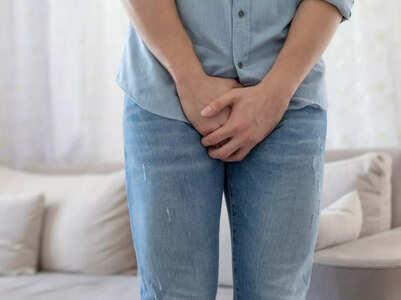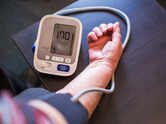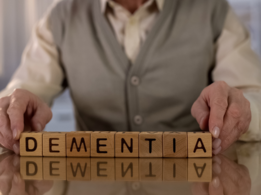Study reveals the best time to sleep for a healthy heart
Are you left brained or right brained?
Monitor glucose levels painlessly with Abbott
Squid Game lead stars reveal which was the toughest game to shoot! Here’s why it’s good for you
Are you a COVID survivor? Doctor shares what you need to know about your lungs
Study reveals the best time to sleep for a healthy heart
Study reveals the best time to sleep for a healthy heart

Sleep is the best way to relax and rejuvenate your body. It is what eliminates all the physical and mental stressors and reduces the risk of developing various illnesses, including cardiovascular complications. That said, while for some, bedtime starts as and when they fall off to sleep, research suggests that there could be an optimal time to go to bed so as to ensure a healthy heart.
The study
According to a recent UK study, sleeping between 10 p.m. and 11 p.m. is the best time for heart health. The new research published in the European Heart Journal, collected data from more than 88,000 participants aged 43 to 79 in the U.K. Biobank study, who agreed to monitor their bedtime and wake-up time over a 7 days using an accelerometer.
Additionally, the volunteers underwent various physical, demographic, lifestyle and health assessments.
The study found that people who went to bed before 10 p.m. and later than 11 p.m were associated with a greater risk of developing cardiovascular disease than those who went to sleep between 10-11pm. Also, the association between bedtime and the risk of developing heart diseases was higher among women.
Read more: Do you breathe through your mouth while sleeping? Read this
Sufficient sleep and proper bedtime are key to a healthy body
Sleep deprivation has often been linked to health conditions such as hypertension, obesity and diabetes. Therefore, researchers in the past have emphasized on the need for at least seven to eight hours of sleep daily.
Similarly, the most recent finding suggests a possible link between sleep onset and cardiovascular risk.
Dr. David Plans, the author of the study and a senior lecturer in organizational neuroscience at the University of Exeter says, “Our study indicates that the optimum time to go to sleep is at a specific point in the body’s 24-hour cycle and deviations may be detrimental to health.” “The riskiest time was after midnight, potentially because it may reduce the likelihood of seeing morning light, which resets the body clock," he adds.
Furthermore, he explains how optimum bedtime fits well with circadian rhythms and daylight exposure. “While we cannot conclude causation from our study, the results suggest that early or late bedtimes may be more likely to disrupt the body clock with adverse consequences for cardiovascular health,” elaborates Dr. Plan.
However, the 10 p.m. to 11 p.m. ideal sleep window might not apply for everyone, demanding more research.
According to Dr. Sanjay Bhat, Senior Consultant - Interventional Cardiology, Aster CMI Hospital, Bengaluru says that there is no such thing as the right time to sleep.
"A proper 8 hours of uninterrupted sleep is vital for a healthy heart and healthy functioning of the body," he says. Furthermore, one should not consume alcohol or pop sleeping pills to help sleep better. If someone is experiencing insomnia or frequently getting up or breathing issues during the night, it is recommended to seek immediate medical help or advice, he elaborates.
The study
According to a recent UK study, sleeping between 10 p.m. and 11 p.m. is the best time for heart health. The new research published in the European Heart Journal, collected data from more than 88,000 participants aged 43 to 79 in the U.K. Biobank study, who agreed to monitor their bedtime and wake-up time over a 7 days using an accelerometer.
Additionally, the volunteers underwent various physical, demographic, lifestyle and health assessments.
The study found that people who went to bed before 10 p.m. and later than 11 p.m were associated with a greater risk of developing cardiovascular disease than those who went to sleep between 10-11pm. Also, the association between bedtime and the risk of developing heart diseases was higher among women.
Read more: Do you breathe through your mouth while sleeping? Read this
Sufficient sleep and proper bedtime are key to a healthy body
Sleep deprivation has often been linked to health conditions such as hypertension, obesity and diabetes. Therefore, researchers in the past have emphasized on the need for at least seven to eight hours of sleep daily.
Similarly, the most recent finding suggests a possible link between sleep onset and cardiovascular risk.
Dr. David Plans, the author of the study and a senior lecturer in organizational neuroscience at the University of Exeter says, “Our study indicates that the optimum time to go to sleep is at a specific point in the body’s 24-hour cycle and deviations may be detrimental to health.” “The riskiest time was after midnight, potentially because it may reduce the likelihood of seeing morning light, which resets the body clock," he adds.
Furthermore, he explains how optimum bedtime fits well with circadian rhythms and daylight exposure. “While we cannot conclude causation from our study, the results suggest that early or late bedtimes may be more likely to disrupt the body clock with adverse consequences for cardiovascular health,” elaborates Dr. Plan.
However, the 10 p.m. to 11 p.m. ideal sleep window might not apply for everyone, demanding more research.
According to Dr. Sanjay Bhat, Senior Consultant - Interventional Cardiology, Aster CMI Hospital, Bengaluru says that there is no such thing as the right time to sleep.
"A proper 8 hours of uninterrupted sleep is vital for a healthy heart and healthy functioning of the body," he says. Furthermore, one should not consume alcohol or pop sleeping pills to help sleep better. If someone is experiencing insomnia or frequently getting up or breathing issues during the night, it is recommended to seek immediate medical help or advice, he elaborates.
End of the article
Comments (0)
Featured in Health & Fitness

Most popular workout songs (English)

Stomach bug (norovirus) cases in Kerala: Things you should know

Diabetes can lead to irreversible vision loss

Arjun Tendulkar's diet and gym routine

Beverages to drink for breakfast for weight loss

"I had the same meal for lunch and dinner"

This food can up your risk of prostate cancer

Foods that are good for menstrual health

Study reveals the best time to sleep for a healthy heart
LATEST VIDEOS
Health-Fitness
 Greater muscle mass may increase risk of hot flashes: Study01:10
Greater muscle mass may increase risk of hot flashes: Study01:10 Plant-based gummy candy helps vegans, vegetarians get their vitamins01:10
Plant-based gummy candy helps vegans, vegetarians get their vitamins01:10 5 calming yoga mudras to ease menopause symptoms06:39
5 calming yoga mudras to ease menopause symptoms06:39 Study finds unexpected antibody type in people with malaria infections01:10
Study finds unexpected antibody type in people with malaria infections01:10 The right way to eat and stay guiltfree this Diwali with Celebrity nutritionist Neha Sahaya10:45
The right way to eat and stay guiltfree this Diwali with Celebrity nutritionist Neha Sahaya10:45 Lack of sleep affects students' mental health especially women: Research01:10
Lack of sleep affects students' mental health especially women: Research01:10 Glycogen is linked to heat generation in fat cells, finds study01:10
Glycogen is linked to heat generation in fat cells, finds study01:10 Childhood trauma: How it can affect you as an adult02:03
Childhood trauma: How it can affect you as an adult02:03 Research explores how immune system gets altered by COVID-1901:10
Research explores how immune system gets altered by COVID-1901:10 Stroke signs you MUST not miss and ways to avoid stroke risk09:18
Stroke signs you MUST not miss and ways to avoid stroke risk09:18
StoriesSEE All


























































































![[New!] Level 4 - 30 minute tempo fat-burning! [New!] Level 4 - 30 minute tempo fat-burning!](https://static.toiimg.com/thumb/79327298.cms?width=147&height=86)















closecomments
SIGN IN WITH
FacebookGoogleEmail